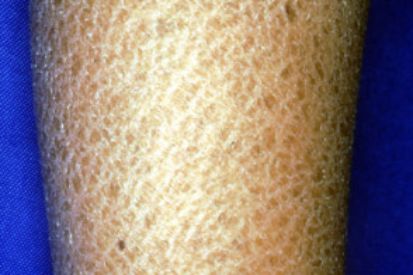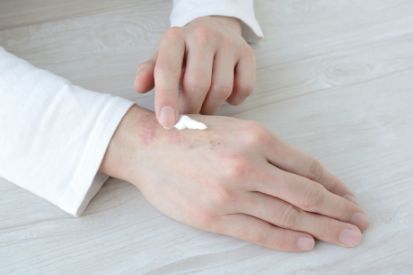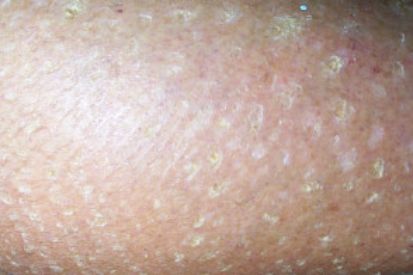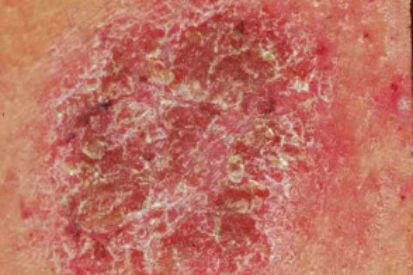Dry Skin
Pinehurst Dermatology & Mohs Surgery Center dermatologists provide a range of solutions to help relieve dry skin. They might suggest using gentle cleansers and moisturizers that contain hydrating ingredients like hyaluronic acid or ceramides to help retain moisture. At Pinehurst Dermatology & Mohs Surgery Center, we prioritize your skin health. Learn more about managing dry skin below and schedule an appointment today to address your concerns about dry skin.
Examples of Dry Skin




What are the Symptoms of Dry Skin?
- Skin may appear flaky or develop small, fine scales.
- Dry skin often causes itching, which can be mild to severe.
- The affected skin may become red or irritated.
- Dry skin can make the skin feel tight and rough, especially after bathing.
- In severe cases, the skin may develop cracks or fissures.
What are the Causes of Dry Skin?
- Dry skin can result from a variety of factors, including low humidity, harsh weather, hot water, aging, certain medical conditions, and dehydration.
- Dry skin occurs when the skin lacks moisture, often exacerbated by external factors like harsh soaps and internal factors like inadequate hydration.
How to Prevent Dry Skin
Preventing dry skin involves adopting a skincare routine and lifestyle practices that promote moisture retention. Here are several key strategies:
- Moisturize: Use a suitable, fragrance-free moisturizer to keep the skin hydrated. Apply it after bathing to lock in moisture.
- Protect from harsh conditions: Wear appropriate clothing to shield the skin from harsh weather, wind, and sun exposure.
- Build a custom skincare routine: Work with your skin care expert to build a routine specific to your needs.
If your dry skin is a persistent issue, we recommend scheduling an appointment with one of our certified skin experts. Our team can help you create a personalized treatment plan to alleviate your dry skin issues. Schedule today.
FAQs for Dry Skin
Dry skin can result from various factors, including cold weather, low humidity, excessive bathing, harsh soaps, aging, and certain medical conditions like eczema or psoriasis.
To prevent dry skin, moisturize regularly, especially after bathing. Use gentle, fragrance-free soaps, limit hot showers, and protect your skin from harsh weather by wearing appropriate clothing.
The best treatments include using thick, emollient-rich moisturizers, applying them immediately after bathing, and using a humidifier at home. For more severe cases, consult a dermatologist for specific recommendations.
Yes, untreated dry skin can lead to cracking, irritation, and an increased risk of infections. It can also worsen existing skin conditions like eczema.
If your dry skin persists despite using moisturizers, causes significant discomfort, or is accompanied by redness, swelling, or sores, it's best to see a dermatologist for further evaluation and treatment.
From our QualDerm Family of Brands: Learn More About Dry Skin
How to Treat Dry Skin
Treatment plans often involve a combination of strategies tailored to individual needs, aiming to alleviate dryness and enhance the skin's natural moisture barrier. Regular follow-ups with a dermatologist assist in monitoring progress and adjusting treatments as necessary.
Featured Products
Check your local office for current stock!
Check your local office for current stock!
